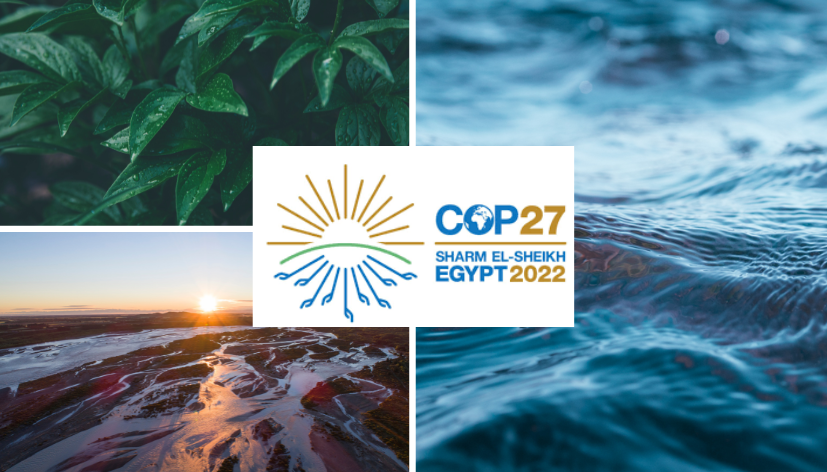
The 27th Conference of the Parties (COP) to the United Nations Climate Change Conference was held from 6 to 18 November 2022 in Sharm el-Sheikh, Egypt.
Testifying to the "essential role of the protection, conservation and restoration of water systems and water-related ecosystems in providing climate adaptation benefits and co-benefits, while ensuring social and environmental safeguards", water and freshwater ecosystems appear for the first time in the final decision of a COP.
In addition, the consequences of increasingly frequent and intense weather events, in which water plays a central role (droughts, floods) were at the heart of the debates. The COP led to a significant advance on the issue of loss and damage for the most vulnerable countries, with the creation of a fund on this subject. The precise terms for the implementation of this fund remain to be established.
Water as an asset for developing nature-based solutions on the Guiana Shield
In accordance with its mission, the BIO-PLATEAUX project has promoted issues related to transboundary water resources management, particularly on the Guiana Shield. The project has been mentioned at various meetings and events, including on 14 November (Water Day) and 15 November, 2022 (Nature-based Solutions Day).
The consequences of climate change are impacting the Guiana Shield. However, as we were reminded in a remote presentation by Mr Patrick Lecante, President of the Water and Biodiversity Committee of French Guiana and Mayor of Montsinéry-Tonnégrande, rich aquatic ecosystems offer exceptional assets to cope with it. Wetlands and mangroves act as carbon sinks, provide buffer zones during floods and against rising sea levels, and can filter pollution.
Another asset of this territory is that it is still relatively preserved compared to the rest of the world. This makes it a reference point for researchers from all over the globe, allowing them to better understand the behaviour of rivers and aquatic ecosystems that have been relatively spared from human pressures. It is also a territory where people have built a completely different relationship with nature. Their ancestral knowledge and way of life make them question the dominant models and reinvent themselves, in order to work with nature rather than at its expense.
The Maroni and Oyapock rivers, two vital arteries under increasing pressure
The management of the Maroni and Oyapock river basins located on the Guyana Plateau requires good shared knowledge of water resources and the pressures they face, as recalled by Mr Eduardo Correa Tavares, Secretary of State for Planning of the State of Amapa in Brazil, in a high-level session on nature-based solutions in the presence of Mrs Bérangère Couillard, French Secretary of State for Ecology, and Mrs Florika Fink-Hooijer, Director General for the Environment at the European Commission.
The demographic explosion has numerous direct and indirect consequences on rivers and inhabitants, in a context of limited access to essential services. In addition, these river basins are subject to growing pressure from illegal gold mining, while climate change adds to the challenges impacting the quality of aquatic environments.
Common responses to shared challenges
The Maroni and Oyapock rivers are river basins that bring people together rather than separating them with borders, and the solutions to face these challenges cannot be decided on individually, otherwise efforts will fail. Eduardo Correa Tavares and Patrick Lecante recalled the importance of the BIO-PLATEAUX project as an instrument of dialogue between the three countries that share these river basins (Suriname, France, Brazil). A future Observatory on these rivers will be an occasion to pool forces to improve knowledge, find adapted solutions, and implement them, in order to protect the exceptional people and environment of this region of the world.
Links to the relevant sessions on the International Network of Basin Organisations (INBO) website
https://www.inbo-news.org/en/events/united-nation-climate-change-conference-cop27
